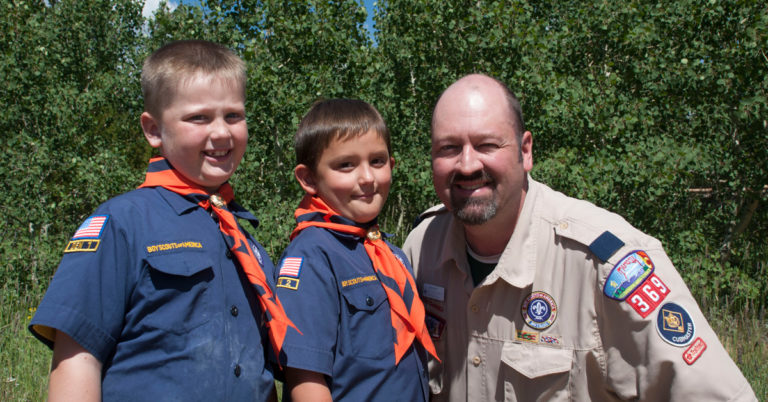Surprise, you’re the Cubmaster! Here’s a guide to getting started

 The moment arrives slowly, then all at once.
The moment arrives slowly, then all at once.
You’ve been involved with the Cub Scout pack for a few months. You have led a few field trips, brought snacks to a few meetings and even led a pack meeting or two all by yourself.
Then suddenly it dawns on you. You’re the Cubmaster.
That all-too-familiar tale happened to Matt Janchar in 2013. He’s been Cubmaster of Pack 157 in Weston, Mass., ever since.
And whether you’re a veteran Cubmaster, new Cubmaster or a Cubmaster-in-training, Janchar has some essential tips to surviving and thriving in this vital role.
Janchar was the guest on the July 2016 edition of CubCast, which you can listen to here or by searching “CubCast” on your favorite podcasting app.
You really should listen to the entire CubCast, but here are some of my key takeaways from this excellent episode:
What’s different about the Cubmaster role?
“Of all the volunteer positions in Cub Scouting, the Cubmaster is the one that requires the most planning and the most thinking ahead, and that is a big transition from simply showing up at den meetings or pack events and volunteering to pitch in and help lead an activity,” Janchar says.
What are the rewards?
“I tell people that it’s probably one of the few leadership roles in the world where the job description sometimes calls for maximum silliness,” Janchar says. “Costumes and songs and stunts… You name it; Cubmasters will do it. I’ve got a box in my Cubmaster closet that looks like it really belongs at the circus. It’s full of wigs and bicycle horns and slide whistles and magic tricks. And it might seem unimportant at first, but that spirit of silliness or fun can be a really effective technique for capturing the attention of your Scouts, connecting with them at their own level, and then setting that tone of fun, adventure and excitement that Scouting can offer.”
What are some survival techniques?
- Set a routine: “Working with my pack committee to plan meetings and the annual calendar became much easier when we took a step back and realized that there are several repeating elements that every pack meeting and every annual Cub Scout calendar should have.”
- Go seasonal: “October, for example, we’ll have our annual Heroes Pack Meeting. We’ll have either the fire department or the police department or the search and rescue team or even the paramedics come in and do demonstrations for the Scouts. … Over December we’ll do a Holiday Pack Meeting, which is when we focus on community service. We’ll do holiday crafts and we’ll deliver those to some senior homes in our town.”
- Reflect on what worked and what didn’t: “Were there any additional materials that would have been helpful to have? How long did each activity really take? Encourage your den leaders and pack parents to pass along those observations and ideas to you if they see something, and soon you’ll have this library of pack meeting and event plans that are just polished to perfection.”
- Keep it active: “Boys love doing. Sometimes they like listening, occasionally they like thinking, but they always will love doing, and that’s why the programming guides are full of so many ideas that have boys getting their hands busy working on crafts or skits or other activities.”
- Make it fun: “If they’re having fun, they’ll leave every pack function eager for the next one.”
- Listen to parents: “Letting parents know that their ideas are valued really goes a long way towards making those parents feel like they have ownership of the program and can be cooperative with you towards helping the pack move forward.”
- Portray Scouting as a team effort: “When parents realize you have the interests of the pack and the interest of their sons at heart they’ll be much more cooperative and inclusive and eager to help.”
- Communicate consistently and purposefully: “We do a weekly or a biweekly email dependent on the pace of our activities that are scheduled for that month. And we also are very careful to keep our website calendar updated with specific times, locations for every single event.”
- Get to know your parents: “I guarantee you that some of the best programming your pack will ever have is programming that’s led by other parents that are knowledgeable, or passionate about a particular topic.”
Learn more
Learn more by listening to (or reading a transcript of) the July 2016 CubCast.
